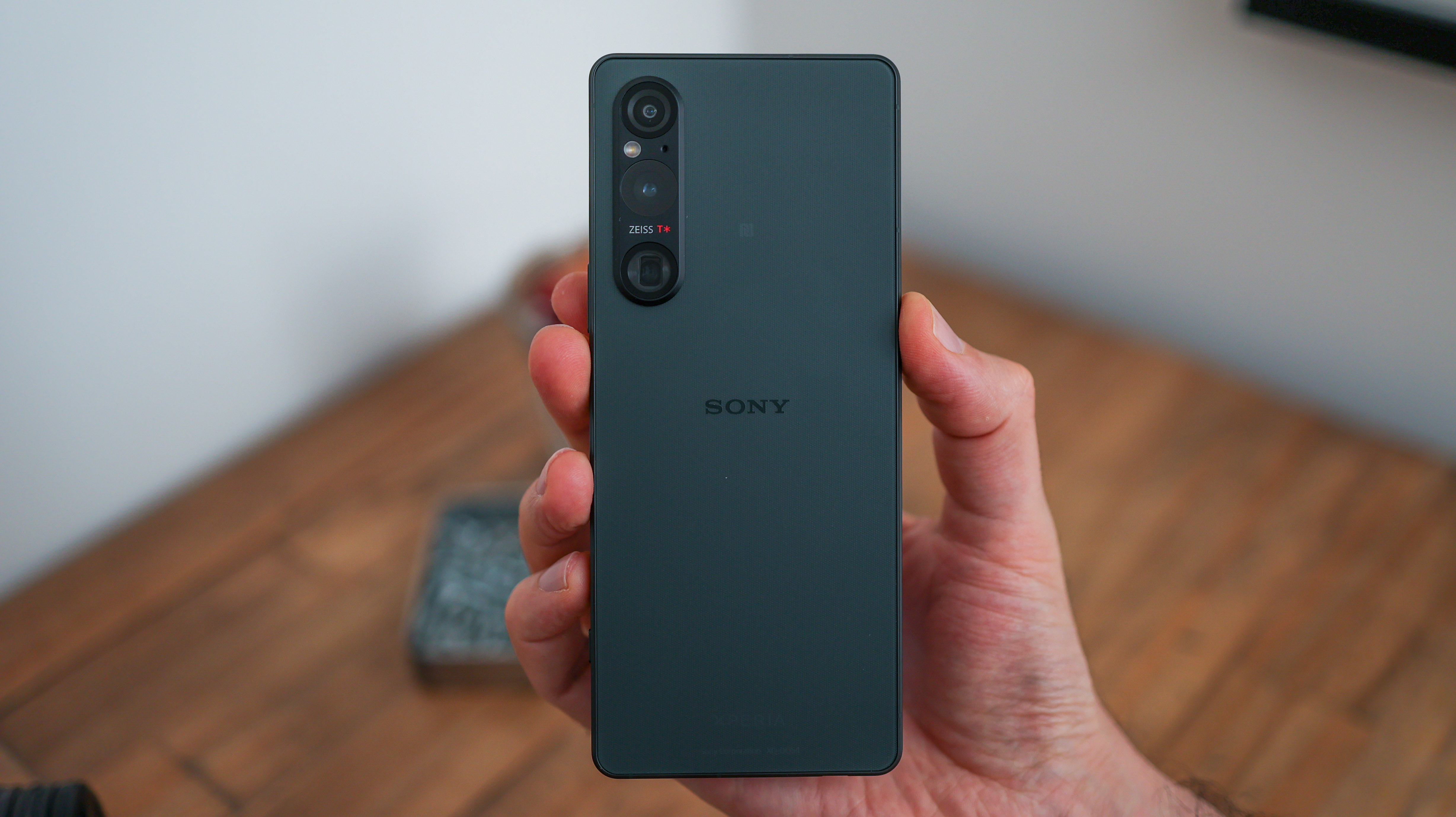
Sony's phones have been niche for years and the Xperia 1 V is no exception. The iconic tech giant has packed in pro-grade camera software, a 3.5mm headphone jack for audiophiles (using the best wired headphones), and sharper-than-the-eye-can-see 4K HDR screen for cinephiles.
In 2022 the phone's predecessor, the Xperia 1 IV, struggled with heat management, particularly when using its pro-grade camera apps. For 2023, Sony's improved thermals – in no small part thanks to the new Qualcomm Snapdragon 8 Gen 2 chipset – and packed in a larger, unique camera sensor that makes its debut on the Xperia 1 V.
While the Xperia 1 line has always dazzled with specs, its failure to get the basics right on more than one occasion has consistently held it back. So can the Xperia 1 V finally bridge the gap between basics and fancy flourishes?
Sony Xperia 1 V: Price and availability
Costing £1,299, the Xperia 1 V is the priciest non-folding mainstream smartphone around. To give you some context, the iPhone 14 Pro Max costs £1,199, and the Samsun Galaxy S23 Ultra costs £1,249.
This sky-high price might be easier to stomach if you pick the phone up on pre-order. Available on EE, Giffgaff and O2, or through Sony's online store, for a limited time, the Xperia 1 V is available with a free set of Sony WH-1000XM5 headphones that cost £349. Given the fact these are some of the best headphones you can buy, this actually makes the Xperia 1 V much better value for anyone in need of new cans.
As for when the phone will actually be on shelves – you can buy the Xperia 1 V from 28 June 2023. So if you're looking to take the plunge then best hop, skip and jump to it...!
Sony Xperia 1 V review: Design
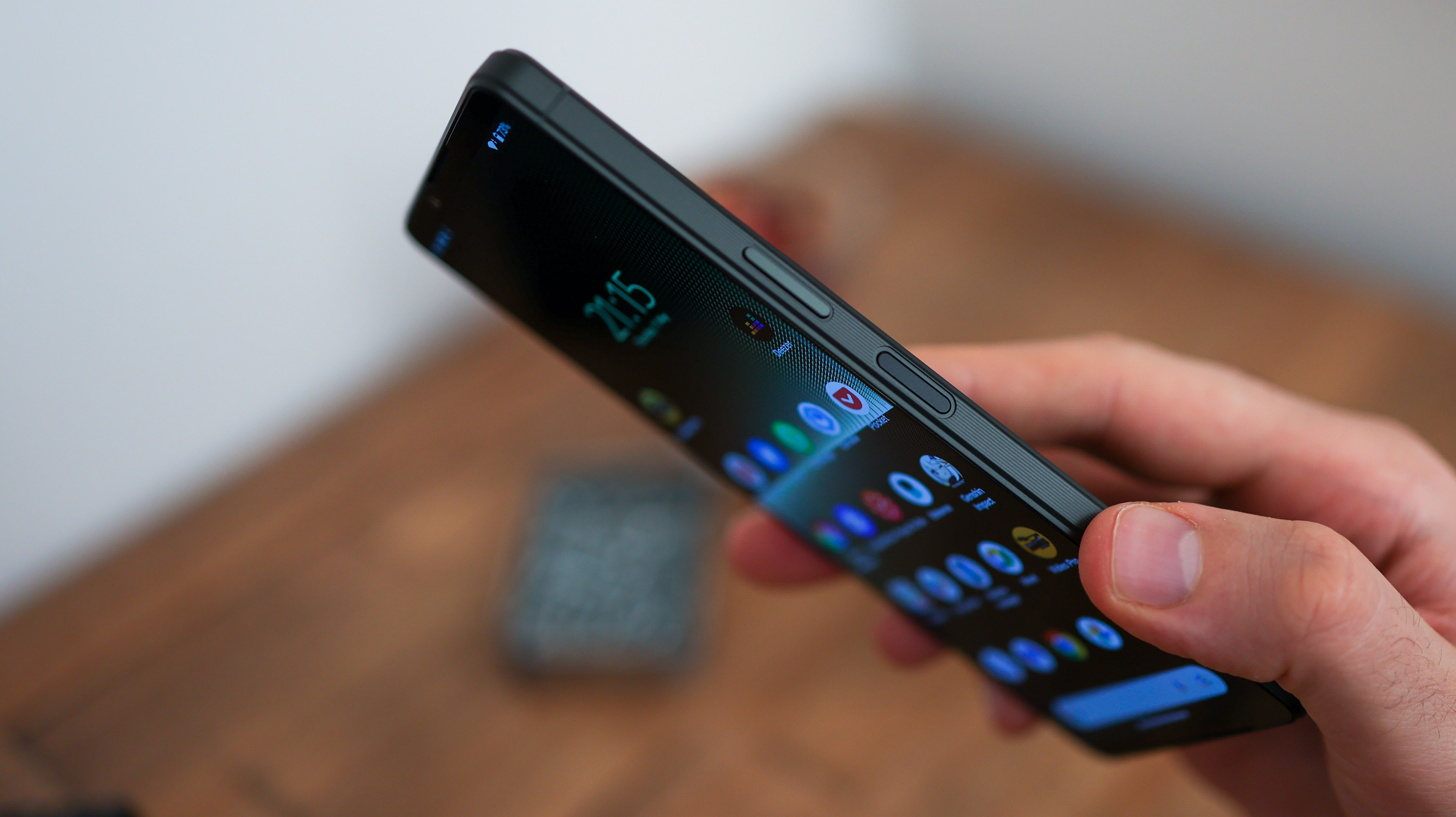
Sony's refreshed its Xperia 1 design ever so slightly for 2023. From the front, it's the same old story: a 6.5-inch 21:9 screen that's bookended by small bezels above and below. That's complemented by flat sides and a flat back. The key difference for the Xperia 1 V is that the Gorilla Glass Victus 2 back panel has a textured, dotted pattern, and the frame has grooves etched into it, both adding a little extra grip.
Sony fans will be happy to know that buttons and ports remain unchanged, so there's a two-stage camera button for anyone who likes button-based camera control, and at the top is a 3.5mm headphone jack for some wired sound.
Other more traditional elements include a power button on the right that doubles up as a fingerprint scanner, alongside a volume rocker, plus the USB-C port at the base.
Another highlight Sony doesn't get enough credit for is its SIM and microSD card tray, which can easily be pulled out with a fingernail. That's despite the fact the phone packs IP68 water and dust resistance and is relatively slim at 8.3mm.
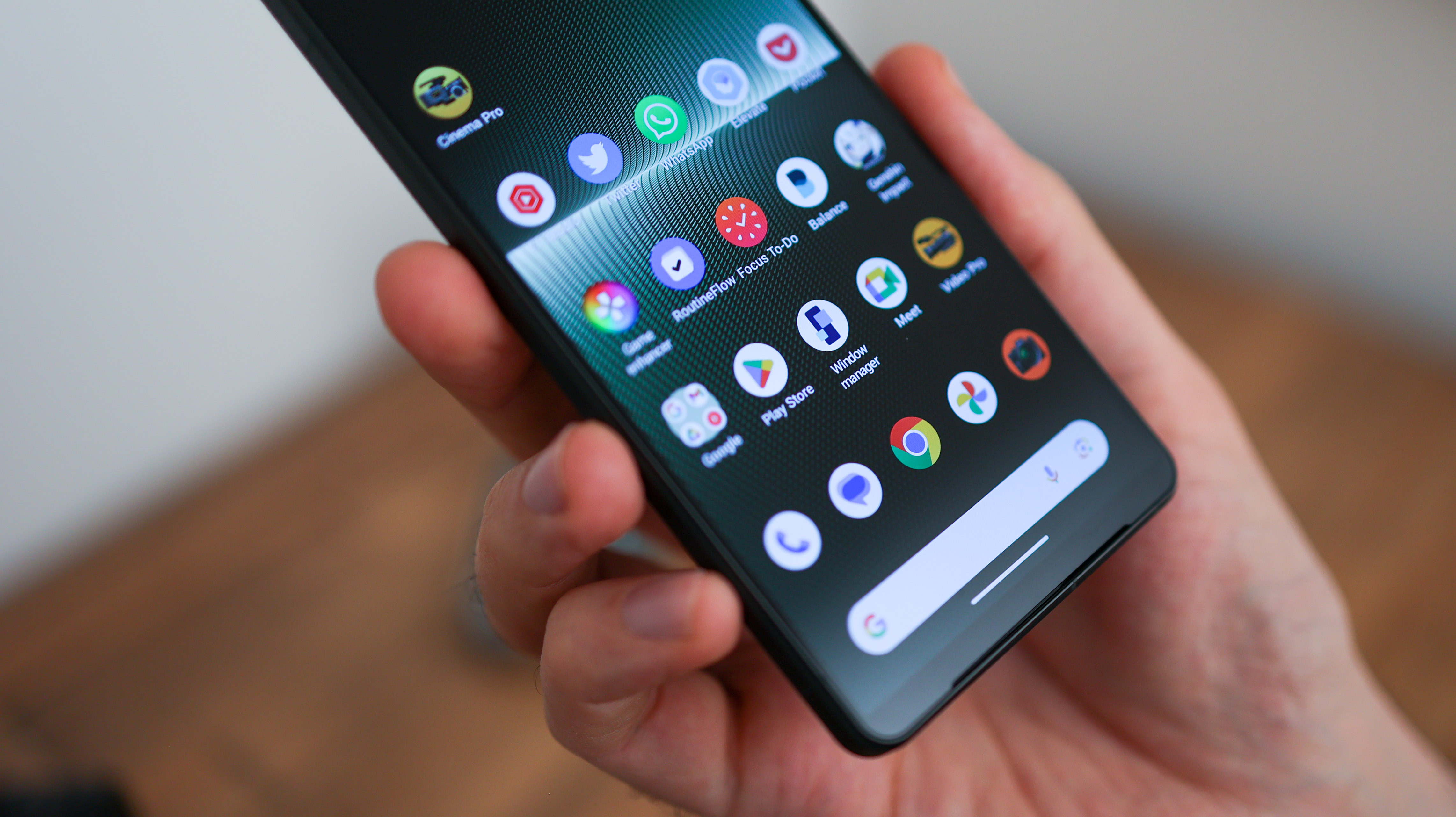
In the hand, the Xperia 1 V's flat sides are easy to hold, and thanks to how narrow the frame is, it nuzzles into a comfortable grip without any issues. What is a stretch is reaching the top of the phone, given how tall the screen is – but it isn't more of a reach than the S23 Ultra or another exceptionally large flagship.
We tested out the Khaki Green-finished Xperia 1 V, which looks dark grey from some angles, though you can also pick the phone up in Black or Platinum Silver.
For anyone who likes Sony's style, the Xperia 1 V should be a solid option. It doesn't take any real risks, but as a result it feels familiar, while elements like a physical camera button and that 3.5mm headphone jack are total novelties nowadays that give the phone a sense of fresh nostalgia.
Sony Xperia 1 V review: Display
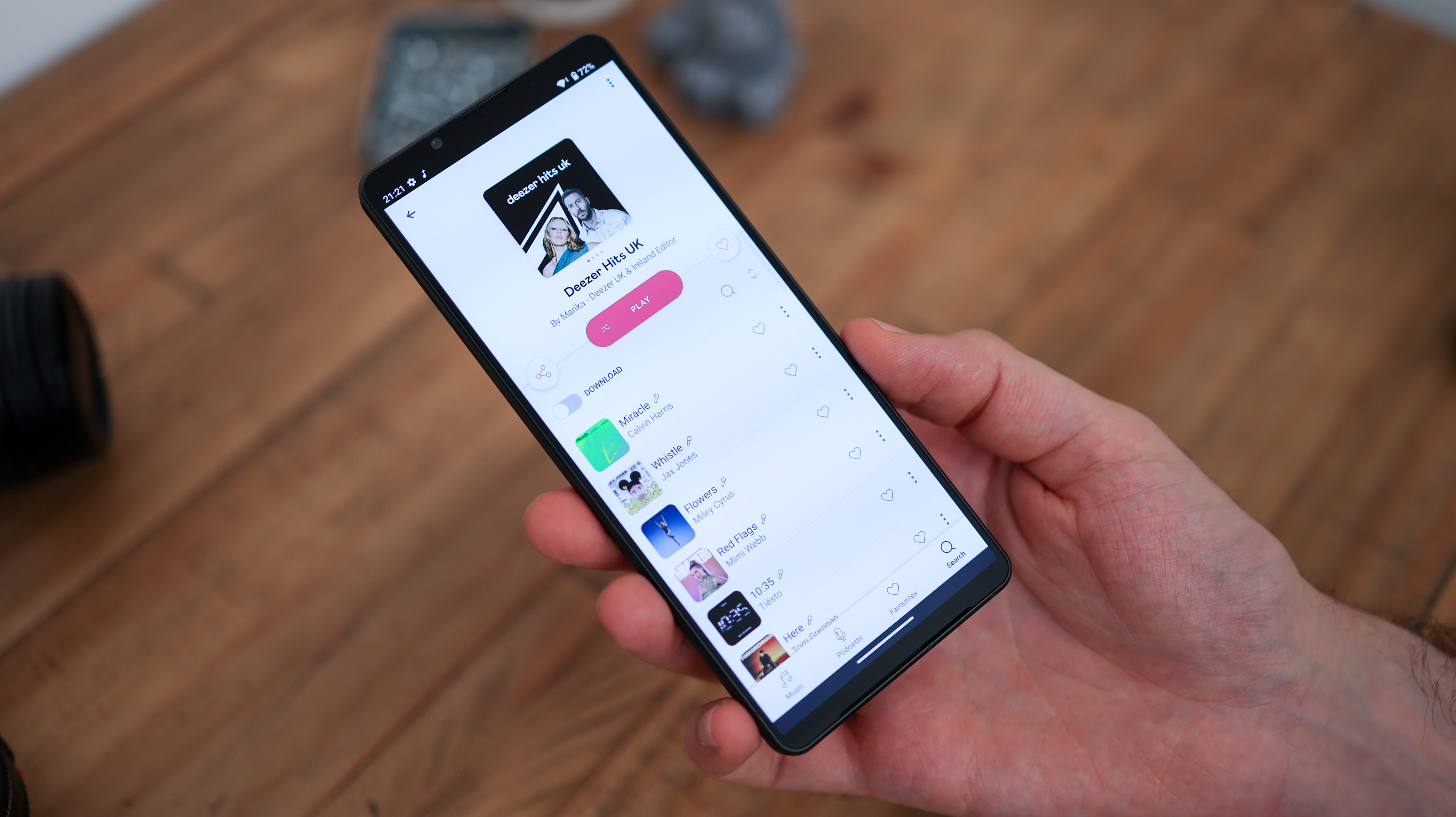
The Sony Xperia 1 V's screen is excellent for the most part, especially considering its 4K resolution is the sharpest spec around outside the Xperia family. So while alternatives like the Google Pixel 7 Pro have a 512ppi pixel density, the Xperia 1 V's display has a staggering 643ppi.
This spec-tastic 4K resolution isn't the only accolade here. The Xperia 1 V's screen also supports HDR10, a range of colour modes, and has a smooth 120Hz refresh rate.
If you think this makes it the best-specced screen on the scene, you're right – but only to a point. Firstly, the Samsung Galaxy S23 line and iPhone 14 Pro Max get brighter than the Xperia 1 V. That means they're easier to see when out in direct sunlight.
The Sony's use of a 4K resolution is also of questionable value. The interface displays things like menus and web pages in Full HD, so you won't actually be looking at 4K content until you fire up a 4K movie. More importantly – you probably won't notice the resolution, given the fact most people can't really spot pixels on screens higher than 400ppi, making the Xperia 1 V's sharpness generally overkill.
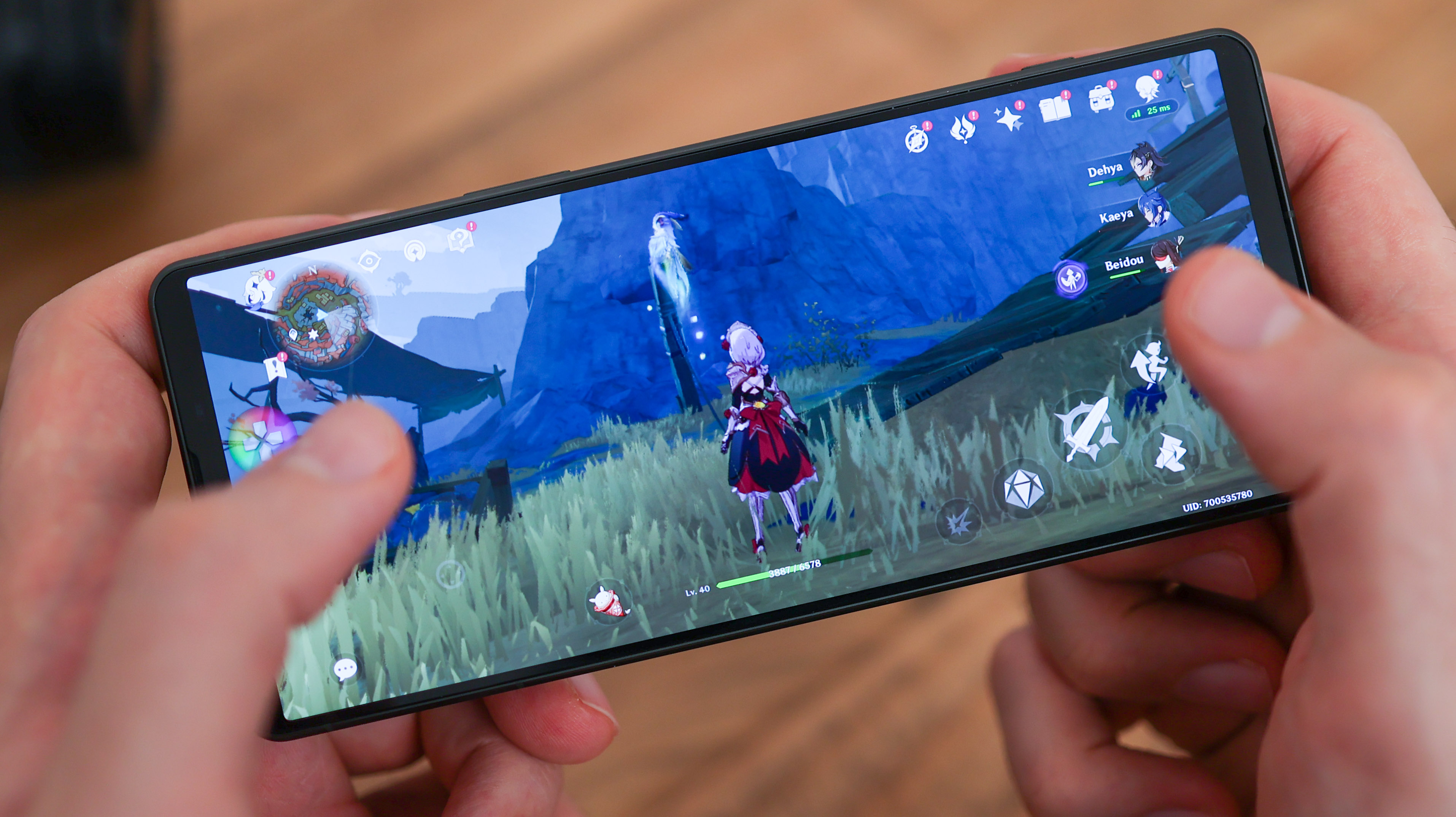
Another point to note: while most of today's flagships feature adaptive refresh rate displays – so the refresh rate goes up and down based on what's on-screen to save battery – the Xperia 1 V's refresh rate is fixed at either 120Hz or 60Hz. Since refresh rate has a big impact on battery life, this is one efficiency Sony's higher-resolution screen misses out on.
Finally, there's the screen's tall 21:9 aspect ratio. Flip the phone sideways, fire up a movie like Logan on Disney Plus, and the Xperia 1 V is in its cinematic, widescreen element – perfectly optimised with no borders in sight.
But when you're not watching a movie and are holding the phone upright, visuals can feel cramped on the Xperia 1 V. From the narrow keyboard to photos and videos, it's just a little less versatile than slightly wider phones.
None of our quibbles take away from the fact the Xperia 1 V has a fantastic screen that looks superb, but there are definitely a couple of trade-offs to balance out that best-in-class resolution.
Sony Xperia 1 V review: Cameras
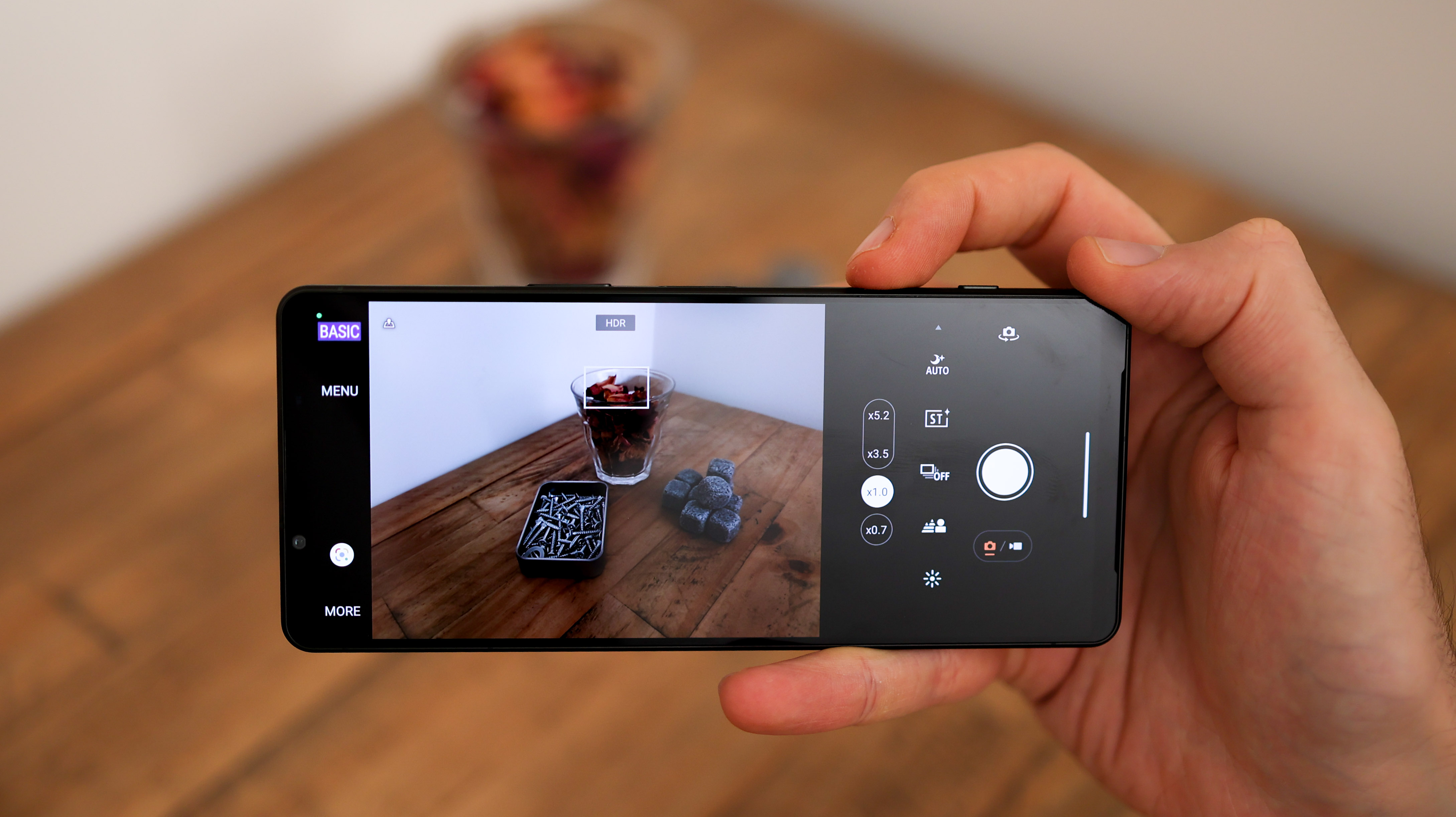
Sony's smartphone cameras have been niche for a while. The first obstacle for casual picture-takers has been choosing which app to use because there are three different camera apps here – Cinema Pro, Photography Pro, and Video Pro.
Next, there's Sony's traditional picture. While Galaxy, iPhone and Pixel phones automatically brighten up shadows and dark scenes, making them powerful nighttime cameras, Xperia historically has kept shadows dark, shying away from computational photography.
This combo of lots of pro-grade tools and traditional pared-back processing has done a good job of keeping all but the most enthusiastic smartphone photographers and videographers at bay. But this year, Sony is mainstreaming things a little...




The Xperia 1 V's photo processing in Basic mode does a great job of boosting shadows and firing up a powerful night mode – a first for the line.
The main camera has also been upgraded, with its 50-megapixel resolution and 1/1.3-inch sensor size making it more competitive when set alongside phones like the Vivo X90 Pro and iPhone 14 Pro. Sony's also added a little engineering special sauce to the mix, restructuring the sensor to make it even better in low-light conditions.
The other cameras are unchanged from last year's Xperia 1 IV. There's a 12MP telephoto camera with a continuous zoom that takes you from 85-125mm (with a f/2.3-2.8 aperture max) – roughly a 3.5-5.5x zoom – and the third camera is a 12MP ultra-wide with a 124-degree field of view and autofocus.

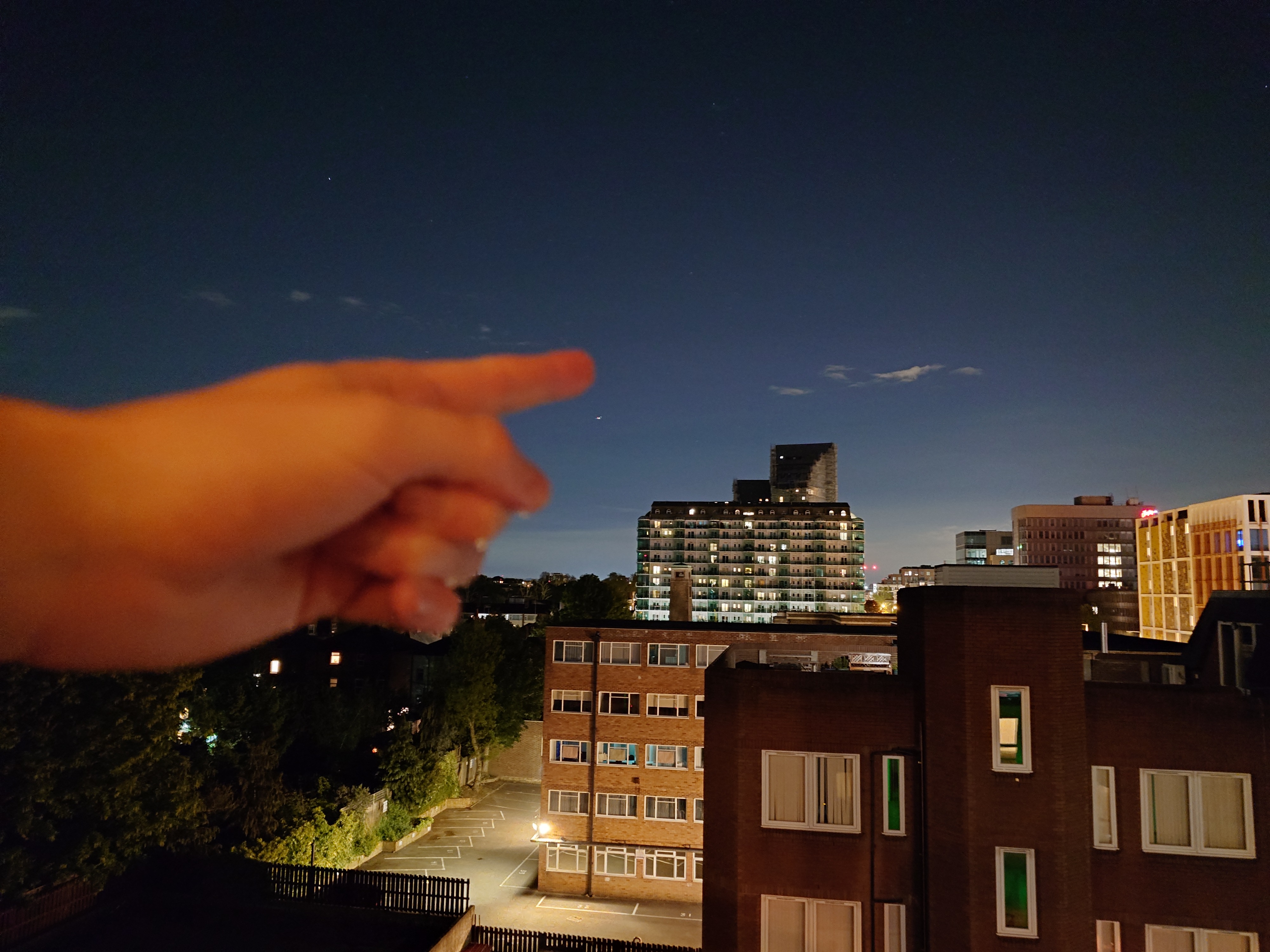


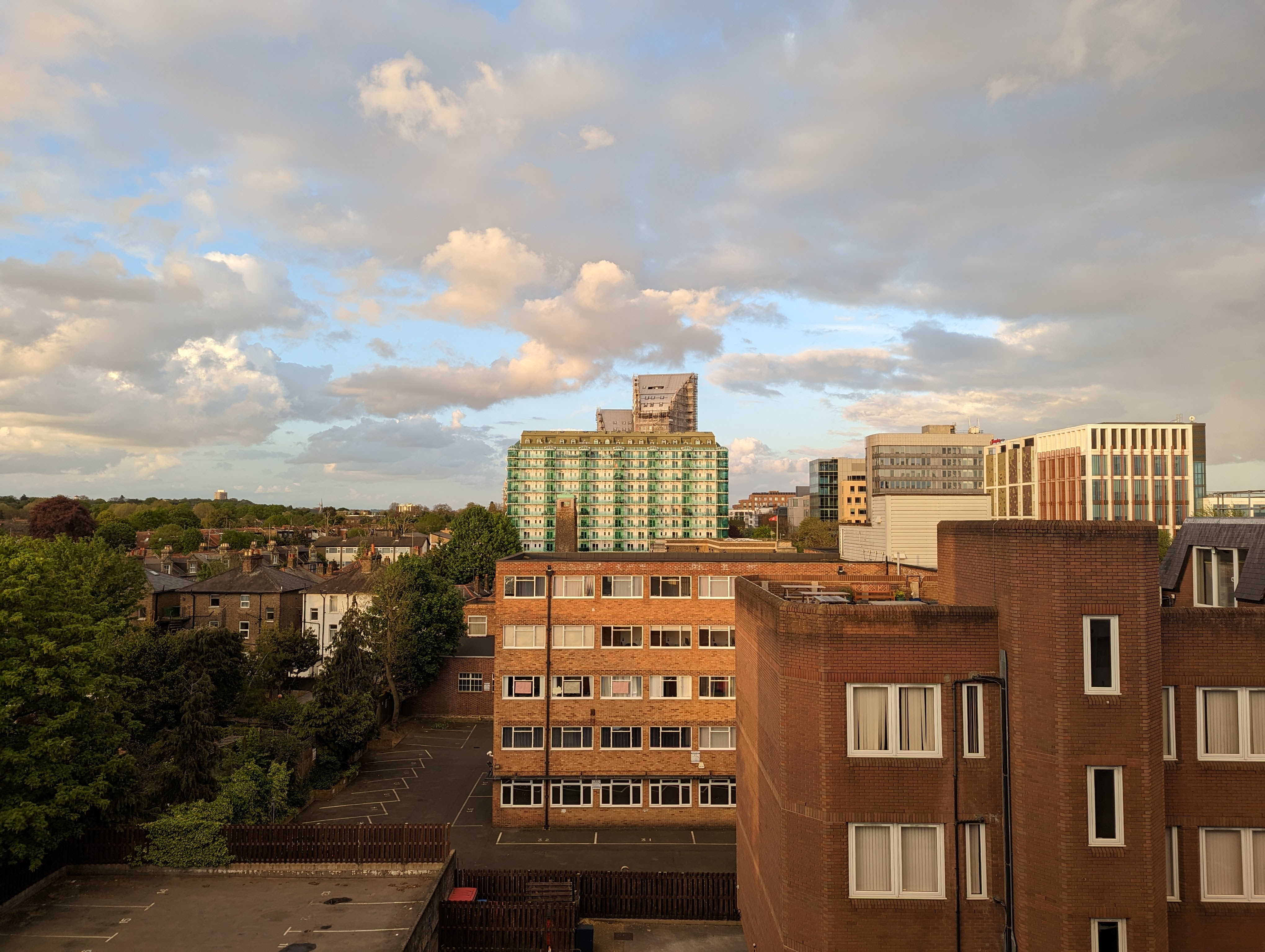
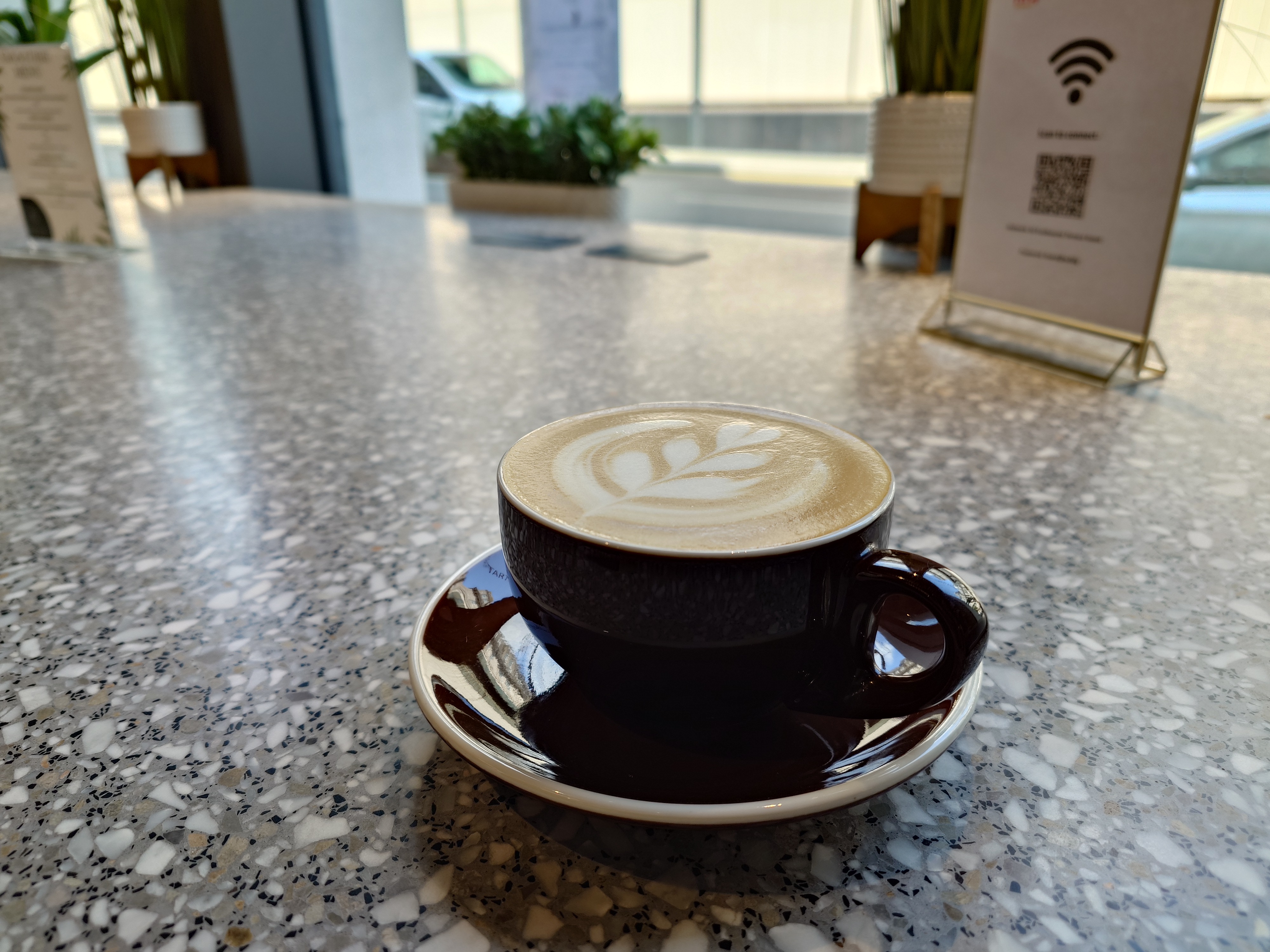
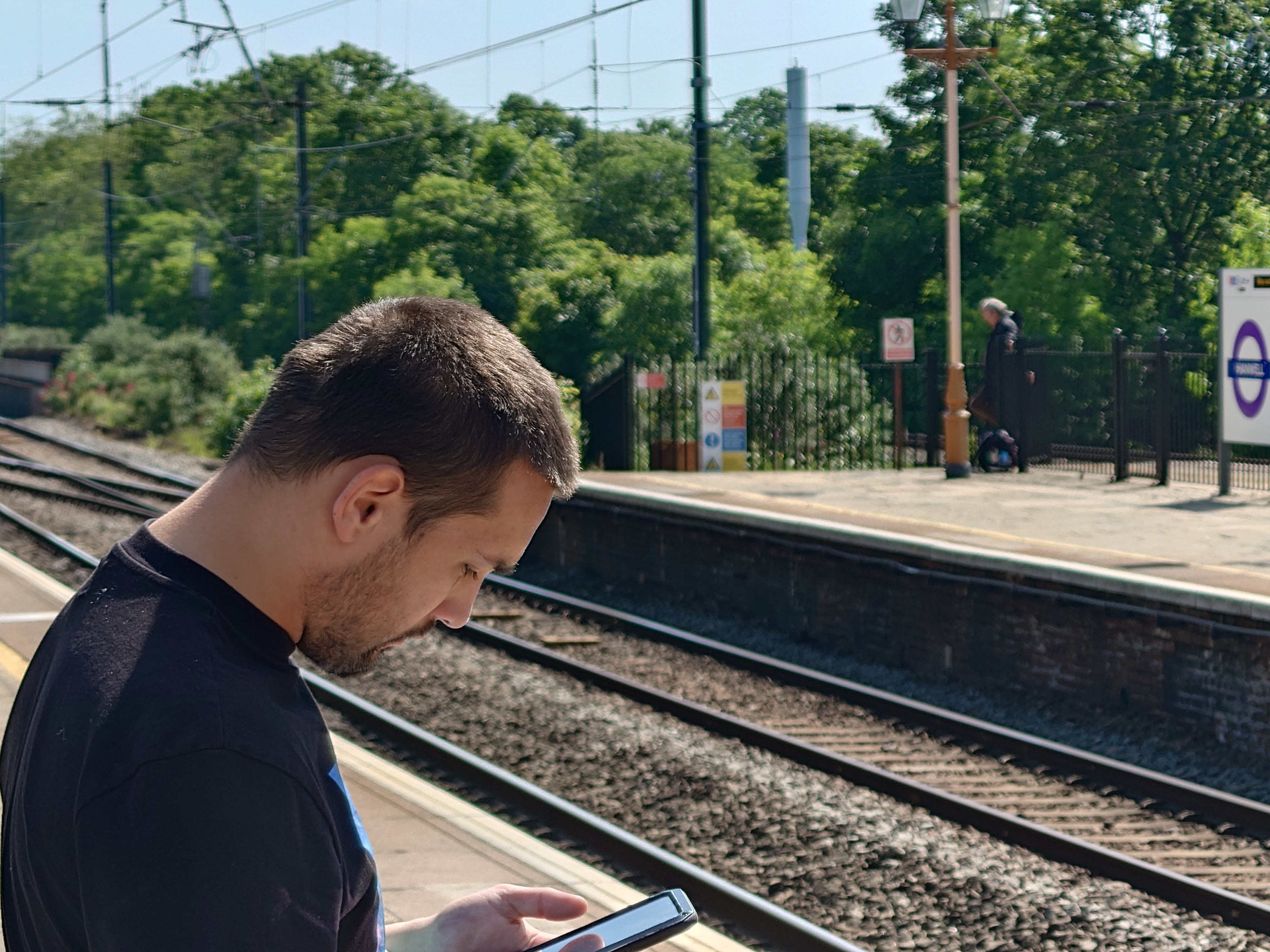
You can see from the photo samples above that the Sony Xperia 1 V is a very good camera phone. It captures balanced photos that look both realistic and punchy.
The main camera is the best of the bunch, with the new larger sensor doing a better job in low-light conditions when shooting in auto mode than we've seen previously from Sony's series. While the ultra-wide and telephoto cameras are competent, they particularly shine during the day.
What the sample photos don't illustrate is just how pro you can go with the Xperia 1 V. Its Video Pro app gives you control over your footage's look, including the popular S-Cinetone profile. And for the first time on a smartphone, access to Sony's Product Showcase feature, so the autofocus is poised to quickly switch between a face and an object you bring into frame – perfect for vlogging – you can see an illustration of the feature in action below.
In addition to upgraded pro video control, the Xperia 1 V also has a third microphone around the back, so it can pick up voices more clearly – another boon for vloggers. The Cinema Pro app is where you can take your filmmaking even further, with shutter angle control and 21:9 capture.
This all paints a picture of the Xperia 1 V as a powerful camera phone, with impressive hardware, software and great-looking results. That doesn't mean it's for everyone, though. After all, you're paying a premium for all these bells and whistles, and the vast majority of smartphone buyers will never venture beyond the Basic mode.
So while it's excellent to see Sony has upgraded its automatic capture significantly, the Xperia 1 V still makes the most sense for enthusiasts who want maximum control over their photos and footage – not casual users.
Sony Xperia 1 V review: Performance
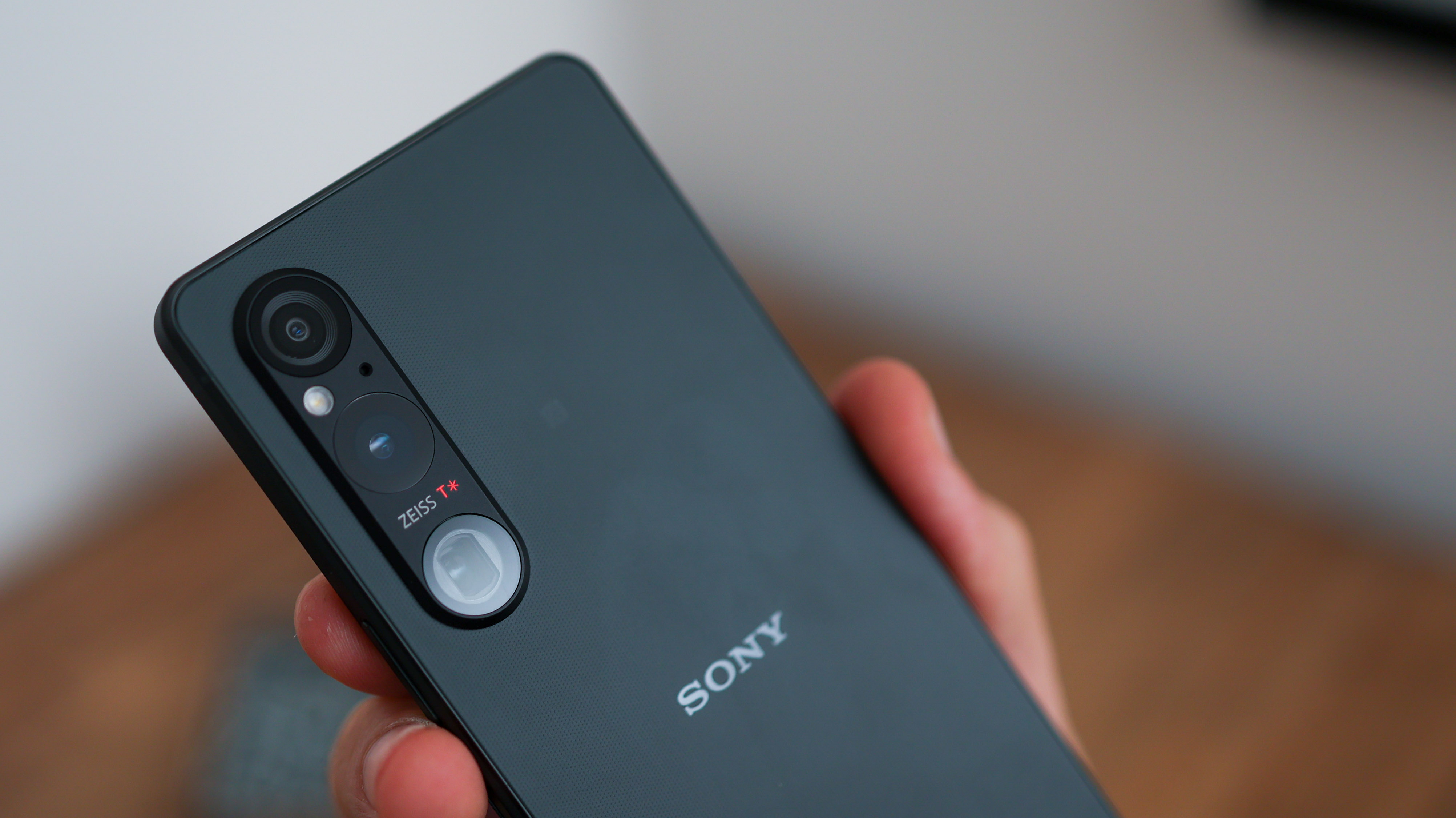
While 2022's Xperia 1 IV got hot when filming and gaming, 2023's Xperia 1 V is a much better performer, able to playback games at 120fps for extended periods without getting uncomfortably warm. If the phone is in a case then heat builds up faster, and if you drop the screen refresh rate to 60Hz then it takes longer to warm up. But generally speaking, the Xperia 1 V's heat management is competitive.
The Qualcomm Snapdragon 8 Gen 2 chip powering the Sony Xperia 1 V is as good as it gets in the Android camp right now, with benchmarks matching up to the likes of Samsung's Galaxy S23 Ultra and besting the Pixel 7 and 7 Pro.
The fact Sony has held onto the headphone jack on the Xperia 1 line will keep its fans happy, and the phone sounds great, whether listening on the front-firing stereo speakers, hooking up cans wirelessly – taking advantage of Sony's LDAC audio codec – and of course, when plugging in for the highest quality.
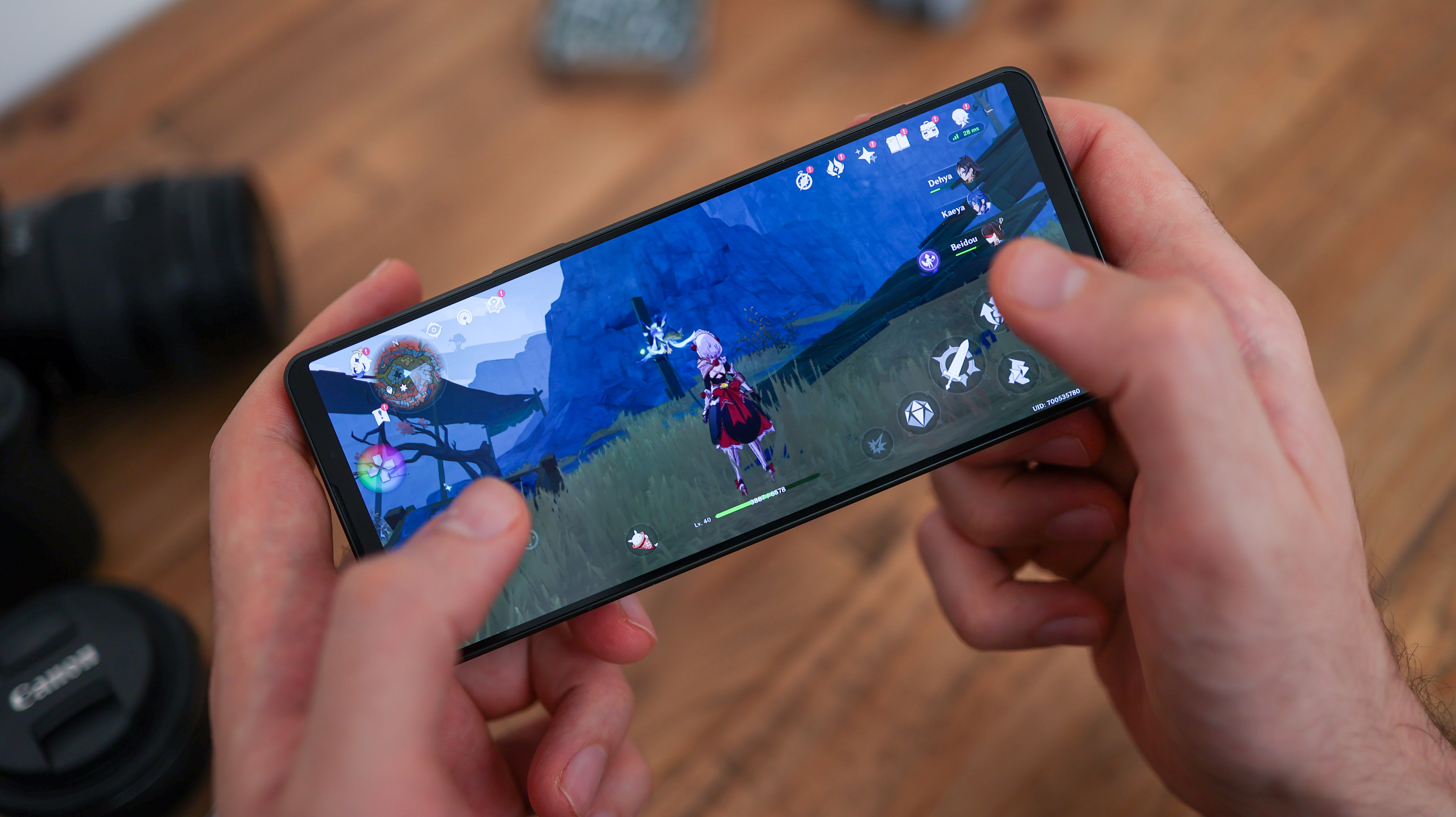
While some brands like Samsung, OnePlus and Oppo are committing to four years of Android OS updates for many of their new phones – an important factor when competing with iPhones and Apple's superb reputation for updates. Frustratingly, Sony's a bit more opaque, failing to commit to a number, though history dictates you should expect about two years of updates for your Xperia, with security updates extending a little further.
Sony's also boosted gaming on the Xperia 1 V with an upgraded Game Enhancer, so you can access more granular control and insights, turn off distractions, turn on performance mode, check device temperature and overlay other apps so you can see gameplay guides and more while grinding your way through dungeons.
As a gaming phone, the Xperia 1 V's super-wide screen isn't optimised for all games we tested on it. Genshin Impact, pictured above, looks fantastic in its 21:9 splendour, but Injustice 2 has chunky borders on the left and right of your frame.
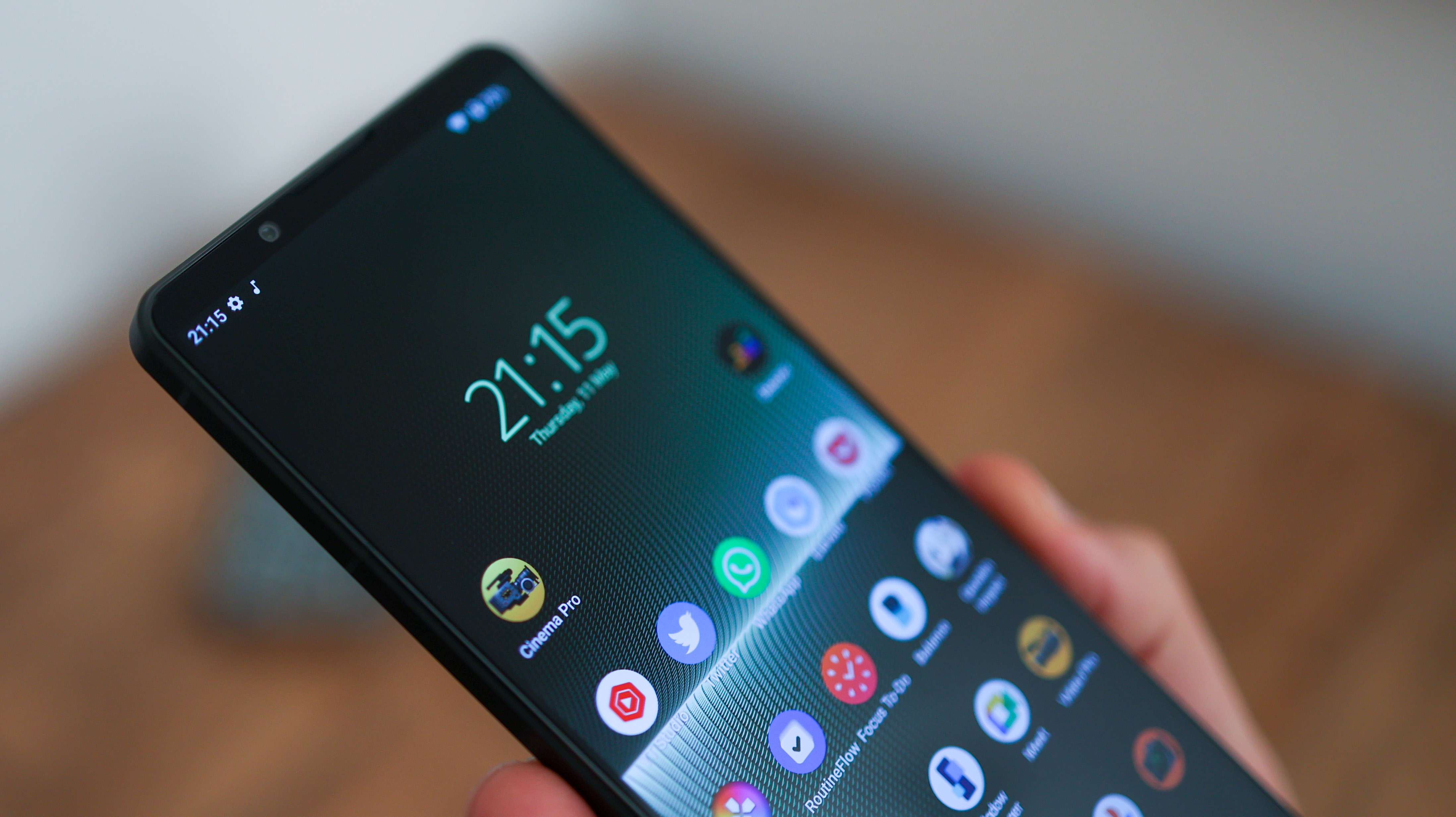
You can unlock your Xperia 1 V with the fingerprint scanner/power button combo, and it worked reliably and quickly in my testing, though unlike most phones, there's no face unlock feature. Sony also supports an always-on display (AOD), so you can see notification highlights and the date and time on your lock screen.
With 256GB storage, Sony's phone has plenty for average users, but if you're buying the Xperia 1 V, you probably aren't an average user. For the price, and positioning of the phone – targeting photo, video and audio enthusiasts – an Honor Magic 5 Pro-matching 512GB would have taken the sting off the asking price.
On the plus, there's a microSD card slot, so you can bump up the storage by up to 1TB, and this should come in handy if you plan on hooking the Xperia 1 V to your Sony Alpha camera, given the fact the phone can double up as an external monitor and recorder.
Sony Xperia 1 V review: Battery & charging
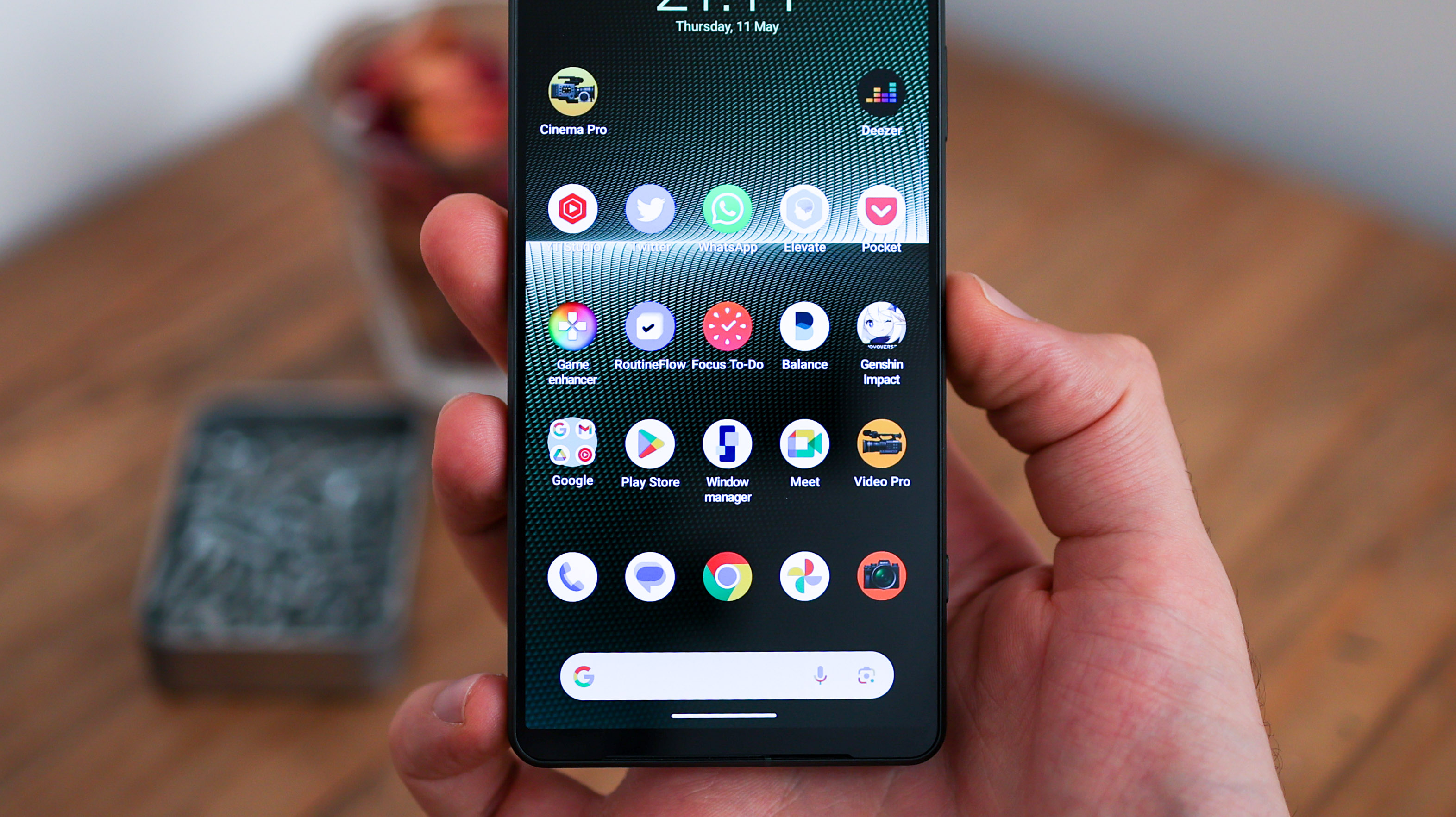
With its 5,000mAh battery, the Xperia 1 V has plenty of capacity to get most people through a full day comfortably. We noticed a few variables had a big impact on battery life – screen brightness and refresh rate – so if you struggle, flicking it to 60Hz should eke out an extra 10-20% on a single charge.
Sony doesn't pack a charging cable or power brick in the box, but that's not a bad thing from a sustainability angle – planet points on that front. Also, the box is made from bamboo, sugar cane fibres, and recycled paper, with Sony also self-developing a flame-resistant plastic comprising some of the phone's components which is 99 per cent recycled.
Charging at up to 30W when plugged in, half an hour of charging will power up the battery by around 50%, while a full charge will take a little over 100 minutes.
The Xperia 1 V also has wireless charging at up to 15W, making both the wired and wireless speeds significantly slower than much of the competition. On the plus, Sony's battery care promises to extend the performance of the Xperia battery over the life cycle of the phone by limiting the amount of time it's plugged in at 100%, and only fast-charging when it thinks you need it.
Sony Xperia 1 V review: Verdict

The Sony Xperia 1 V is a brilliant phone for Sony Alpha camera users, photo and video enthusiasts who want loads of control over their camera system, or headphone fans who want a pro-grade flagship to plug into. For everyone else, though, it's too expensive.
To really compete with the best from Apple and Samsung, Sony either needs to out-perform, or undercut them, but in many key areas it does neither.
The Xperia 1 V screen is perfect for cinematic content but is too tall and narrow to get the best from most other media, games, and phone tasks. It doesn't get as bright as some competition, and the lack of a variable refresh rate matched with that 4K resolution hurts battery life when set to a smooth 120Hz.
The phone's camera is superb for pros who want control, but it doesn't have the best zoom or noise-handling in automatic mode, which most users will default to.
The Xperia 1 V's charging could be quicker, its battery could last a little longer, and the 256GB storage falls short of much less expensive phones like the Honor Magic 5 Pro, with its 512GB capacity.
So while it's the best Sony we've tested and an excellent standalone option, no phone is an island, and in the context of the competition, the Xperia 1 V doesn't quite get a mainstream recommendation thanks to its price.
Also consider
If you want a more user-friendly camera than the Xperia 1 V matched with superb value for money, the Google Pixel 7 Pro and Honor Magic 5 Pro are great alternatives that miss out on some pro features but make up for them with excellent point-and-shoot capture.
The Motorola Edge 40 Ultra is a good-looking option that gives you a stunning screen and Snapdragon 8 Gen 2 power, as well as loads of storage without such a high price tag.
If you like the idea of a pen for your phone, the S23 Ultra really is the only option around, and its more squat screen is also great for multi-purpose content.
Meanwhile, the iPhone 14 Pro Max is the best you can get in the Apple camp, and its ProRes video is amongst the only phone capture that can compete with Sony's new S-Cinetone look.







